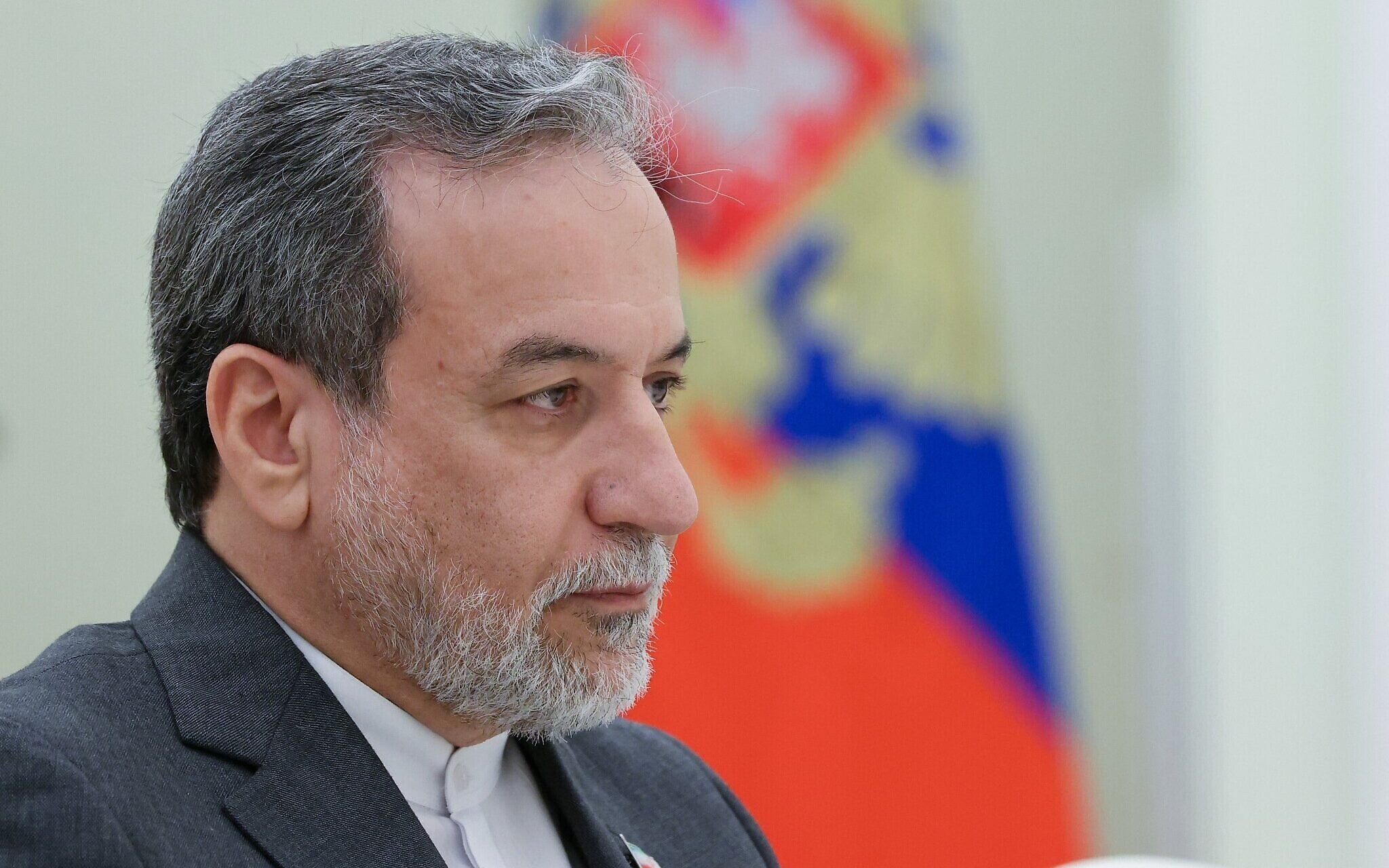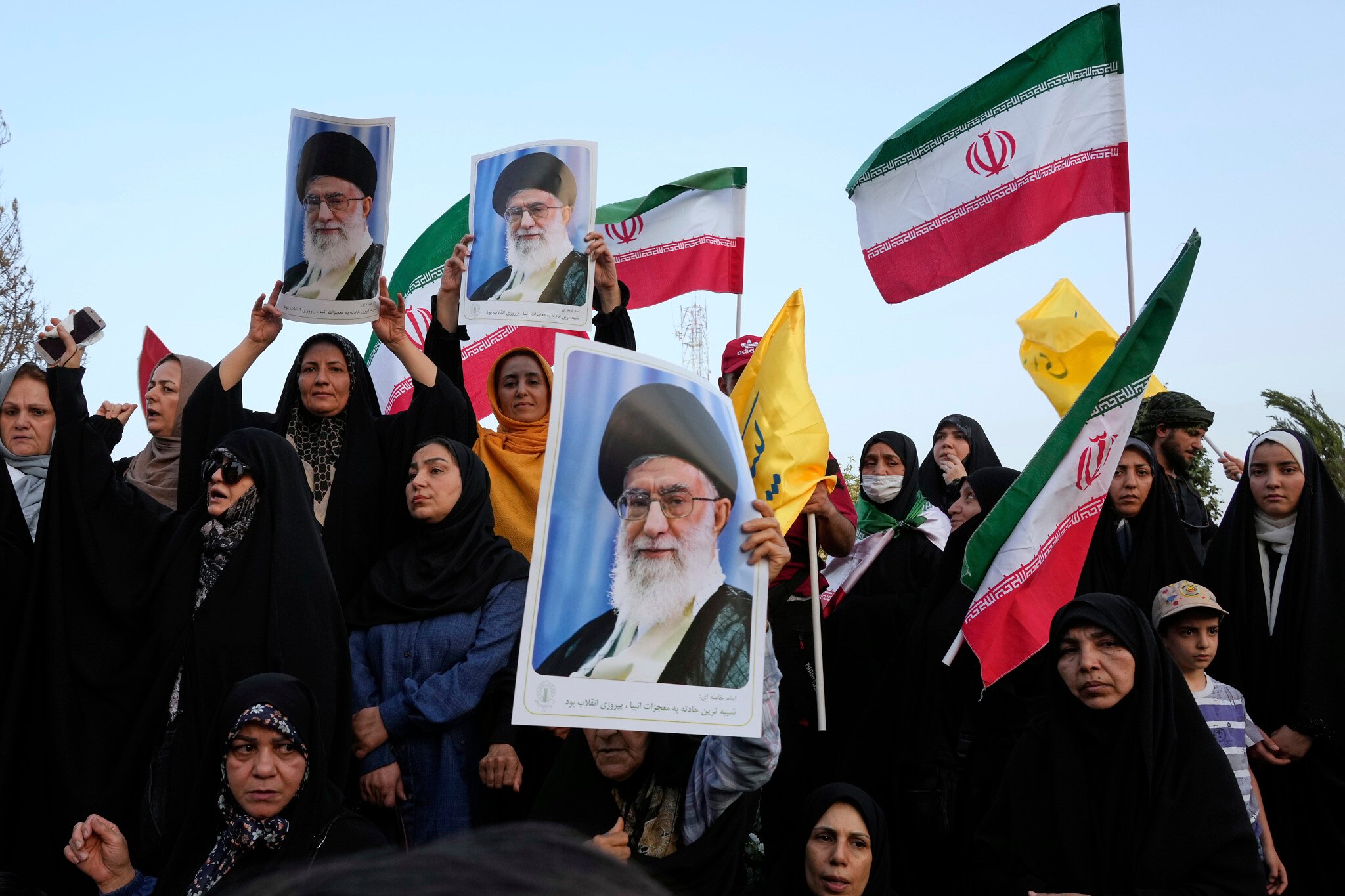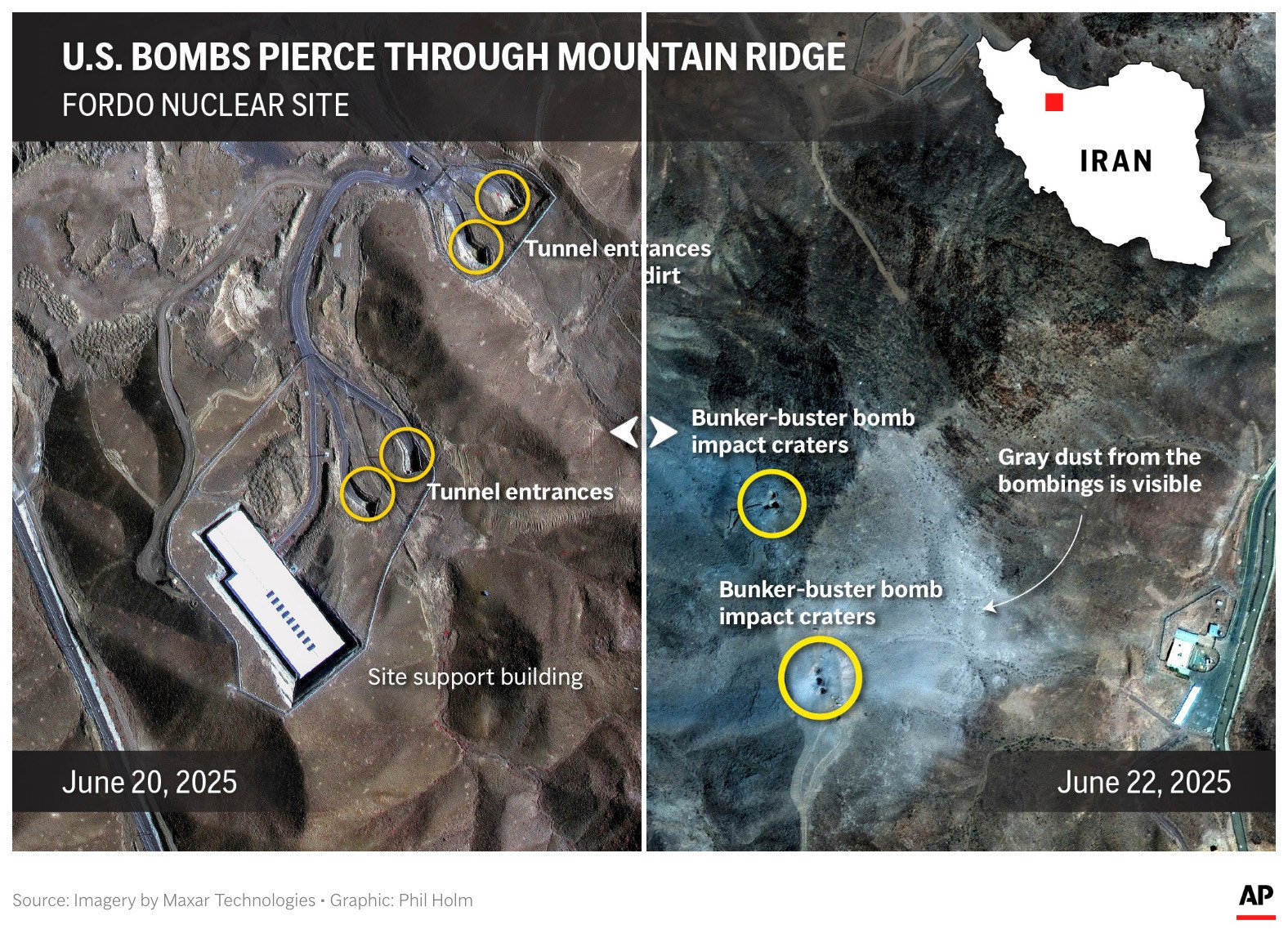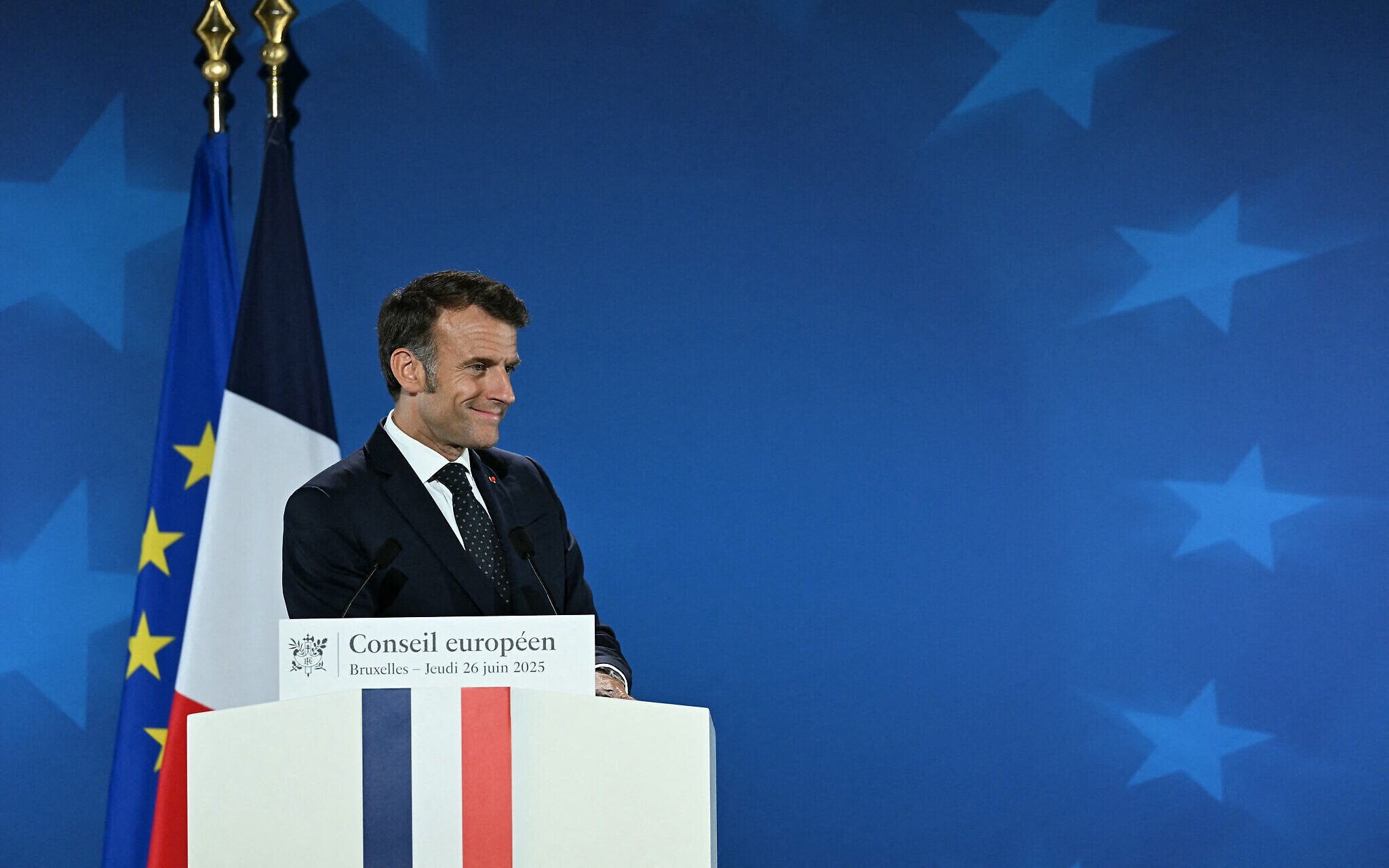



Iran currently has no plan to meet with the United States, Foreign Minister Abbas Araghchi said on Thursday in an interview on state TV, contradicting US President Donald Trump’s statement that there were plans to hold talks with Iran next week.
The Iranian foreign minister said Tehran was assessing whether talks with the US were in its interest, following five previous rounds of negotiations that were cut short by Israel (and subsequently the US) attacking Iran’s nuclear facilities.
The US and Israel said the strikes were meant to curb Iran’s ability to build nuclear weapons. Iran says its nuclear program is solely geared toward civilian use, though its enrichment of uranium to 60 percent purity could only be used for weapons production. Jerusalem says it holds intel that Tehran was taking active steps to build a bomb.
Araghchi said that damage to Iran’s nuclear sites from the 12-day war with Israel was “serious,” as the country begins assessing the conflict’s impact.
“A detailed assessment of the damage is being carried out by experts from the Atomic Energy Organization [of Iran],” he told state television.
“Now, the discussion of demanding damages [from the US and Israel] and the necessity of providing them has been placed as one of the important issues on the country’s diplomatic agenda,” he added.
“These damages are serious, and expert studies and political decision-making are underway at the same time,” he added.
Araghchi’s comments came as Iranian lawmakers passed a “binding” bill to suspend cooperation with the UN nuclear watchdog, and after Supreme Leader Ayatollah Ali Khamenei accused Trump of exaggerating the impact of US strikes on Iranian nuclear sites.
Araghchi said the bill suspending cooperation with the International Atomic Energy Agency was now “binding” after being passed by lawmakers and approved by a top vetting body.
“From now on, our relationship and cooperation with the agency will take a new form,” he stated.
In his speech Thursday, Khamenei hailed what he described as Iran’s “victory” over Israel, vowed never to yield to US pressure, and insisted Washington had been dealt a humiliating “slap.”
“The American president exaggerated events in unusual ways, and it turned out that he needed this exaggeration,” Khamenei said, rejecting US and Israeli claims that Iran’s nuclear program had been set back by years.
The strikes, he insisted, had done “nothing significant” to Iran’s nuclear infrastructure.
The head of Iranian proxy Hezbollah, Naim Qassem, also hailed Iran’s so-called victory Thursday, saying the Islamic Republic “proved it can fight alone against the United States and Israel, which have European assistance.”
Still battered after the 2023-2024 war it instigated with Israel, Hezbollah did not join the 12-day conflict on the side of its patron, arguing that Iran did not require its help. Lebanon’s new government had also warned the group against getting involved.
“We in Lebanon, as Hezbollah, support the independent capabilities of Iran, and we resist Israel and the American hegemony,” he said, claiming that the US and Israel had failed to achieve their objectives to stop Iran’s uranium enrichment and its ballistic missile program, as well as to overthrow the regime.
Israel and the US repeatedly said bringing down the regime was not an aim of the war, though some officials made comments suggesting it could be on the agenda. Debate has been ongoing over the extent of the damage done to Tehran’s nuclear program.
Trump said key facilities, including the underground Fordo uranium enrichment site, had been “obliterated” by American B-2 bombers.
Doubts remain about whether Iran quietly removed some 400 kilograms (880 pounds) of enriched uranium from its most sensitive sites before the strikes, potentially hiding nuclear material elsewhere in the country.
Posting on his Truth Social platform, Trump dismissed such speculation, saying: “Nothing was taken out… too dangerous, and very heavy and hard to move!”
He added that satellite images showed trucks at the site days before the strikes that were there only because Iranian crews were attempting to shield the facility with concrete.
One leaked classified US assessment has suggested the damage to Iran’s nuclear program may be less severe than initially claimed — possibly delaying progress by only a few months.
Senior US officials have rejected this, saying the report was only one preliminary appraisal, and one they argue was mistaken.
CIA Director John Ratcliffe said several facilities would need to be “rebuilt over the course of years.”
Pentagon chief Pete Hegseth accused the media of misrepresenting the operation.
He said the United States used massive GBU-57 bunker-buster bombs on Fordo and another underground site, while submarine-launched Tomahawk missiles targeted a third facility.
“President Trump created the conditions to end the war, decimating — choose your word — obliterating, destroying Iran’s nuclear capabilities,” Hegseth said.
Additionally, the military said Iran’s nuclear sites had taken a “significant” blow, but cautioned it was “still early” to fully assess the damage.
Netanyahu has said the campaign “thwarted Iran’s nuclear project,” warning any attempt by Iran to rebuild it would be met with the same determination and intensity.
French President Emmanuel Macron told journalists after an EU summit in Brussels on Thursday that US strikes on Iran’s nuclear facilities were “genuinely effective.”
But he said that the “worst-case scenario” would be if Tehran now exited the global non-proliferation treaty that is meant to limit the spread of nuclear weapons.
Israel said its campaign against Iran was necessary to prevent the Islamic Republic from realizing its declared plan to destroy the Jewish state. Iran retaliated against Israel’s attacks by launching over 500 ballistic missiles and around 1,000 drones at Israel. Iran’s missile attacks killed 28 people and wounded thousands in Israel, according to health officials and hospitals. Missiles hit apartment buildings, universities and a hospital, causing heavy damage. Iran also fired at a US base in Qatar after the American strikes, which Qatar said were intercepted.



